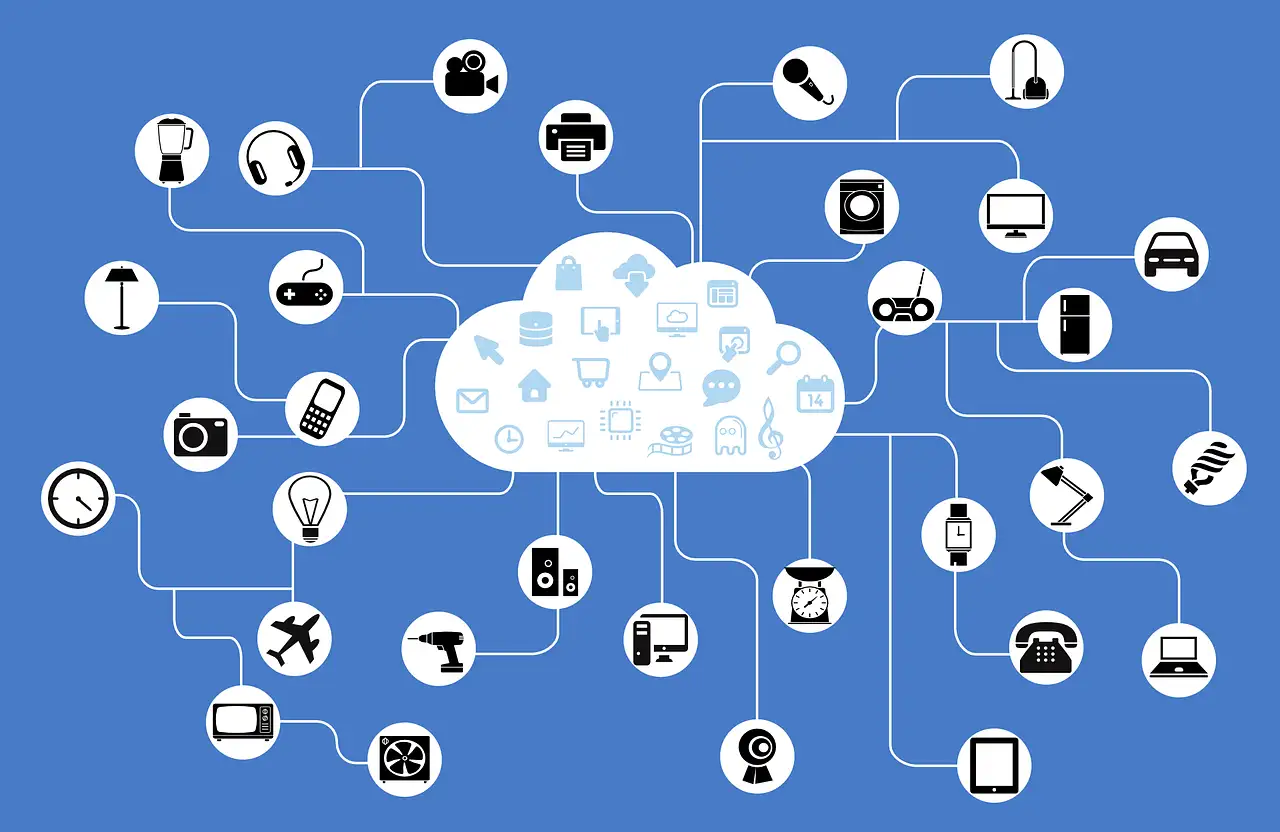Computer science is a vast and complex field that can be difficult to navigate, especially when it comes to completing assignments. If you are struggling to complete your computer science assignments, don't worry! You can get the best computer science homework help from the experts at "Quality Professors." Our team of experienced professionals will help you get your computer science homework completed on time and to the highest standards. So don't wait any longer - contact us today for all of your computer science engineering assignment needs!
Why should you choose Quality Professors for Computer Science assignments?

There are many reasons to get computer science assignment help from Quality Professors when it comes to completing your computer science assignments.
A team of Professionals:
The team of computer science experts at Quality Professors have a wealth of experience in the field of computer science. The computer science tutors can help you with any aspect of your assignment, from choosing a topic to researching and writing the computer science engineering homework. We are simply the best when it comes to computer science assignment help!
On-time delivery:
Quality Professors understand the importance of meeting deadlines for your computer science assignment. We will work with you to ensure that computer science homework help is delivered on time and to the highest standards.
High-quality work:
When you get computer science homework help from Quality Professors, you can be sure that the computer science assignment writing will be of the highest quality. We will make sure that the computer science homework service is well researched and well written so that you can get the best possible grade for your computer science homework.
Affordable prices:
We understand that students have a budget to consider when it comes to getting computer science assignment help.
That's why we offer them computer science assignment help at an affordable price. Contact us today for a free quote for your computer science assignment!
Plagiarism-free content:
The computer science assignment help provided by the team at Quality Professors is 100% plagiarism-free.
We know that this is an important consideration for students needing computer science assignment help, so we make sure that the computer science assignment help we provide is original.
Confidentiality:
We understand that confidentiality regarding computer science homework is important to our clients. All of the information you provide to us related to your computer science assignment will be kept confidential. We will never share your personal information or the details about your computer science homework with anyone.
What is Computer Science?
Computer Science is the study of computers and computational systems. It deals with the design, implementation, and maintenance of software and hardware systems. Computer Science also includes the study of algorithms, data structures, and programming languages.
Computer Science is a rapidly growing field that has seen tremendous advances in recent years. The field is becoming increasingly important as more and more industries are relying on computers and software to run their businesses. As a result, there is a great demand for computer scientists who can design and develop new systems and applications.
Computer Science is an exciting field that offers many challenges and opportunities for those who are interested in it. If you enjoy working with computers and enjoy solving complex problems, then computer science may be the right field for you.
Trending topics in Computer Science
There are many trending computer science subjects that are worth exploring. Here are a few of the most popular:
Artificial Intelligence:

Artificial intelligence (AI) is a branch of computer science that deals with the creation of intelligent agents, which are systems that can reason, learn, and act autonomously. AI has been used in a variety of fields including medical diagnosis, stock trading, robot control, law, and video games .
There are two main types of AI: applied and general. Applied AI deals with specific tasks such as facial recognition or playing a game, while general AI deals with more open-ended tasks such as natural language processing or planning.
AI has been used in a number of medical applications including diagnosis, treatment planning, and drug development. It has also been used in stock trading, robot control, and law.
Some of the most popular video games that make use of AI include the Halo series, the Call of Duty series, and the Gears of War series. You can explore online computer science tutorials for more information on these computer science assignment topics.
Big Data:

Big Data is a term that refers to the massive volume of data that businesses and organizations generate every day. Big Data can come from anywhere: social media, sensors, transactions, images, videos, and more. The key to unlocking the value of Big Data is through advanced analytics, which can help organizations make better decisions, improve operations, and create new products and services.
Despite its name, Big Data isn’t just about size. It’s also about variety and velocity. Variety refers to the different types of data that can be collected (e.g., text, images, video, etc.). Velocity refers to the speed at which data is generated and needs to be processed. To get the most value out of Big Data, organizations need to be able to quickly and efficiently process all of this data to extract useful insights.
There are a number of challenges that come with working with Big Data. Firstly, the sheer volume of data can make it difficult to store and manage. Secondly, the variety of data types can make it difficult to process and analyze. Finally, the speed at which data is generated can make it difficult to keep up with. However, there are a number of new technologies that are helping organizations overcome these challenges and extract value from their Big Data.
Cybersecurity:

Cybersecurity is the practice of protecting computer systems from unauthorized access or theft. It includes both hardware and software security measures. Cybersecurity is important for individuals, businesses, and government organizations alike.
There are many types of cybersecurity threats, including viruses, malware, phishing attacks, and SQL injection. Cybercriminals may try to gain access to a system in order to steal sensitive data, destroy files, or simply disrupt operations. They may also use ransomware to lock users out of their own systems until a ransom is paid.
Businesses and government organizations must take steps to protect themselves from cyberattacks. This includes implementing strong security measures and educating employees about best practices for avoiding risks. Individuals can also take steps to protect themselves, such as using strong passwords and being cautious about clicking on links or attachments from unknown sources.
Internet of Things:

The Internet of Things, or "IoT," is a term used to describe the growing trend of internet-connected devices. Everything from refrigerators and thermostats to cars and light bulbs can now be connected to the internet and controlled remotely. This trend is only expected to continue as more and more devices are created with built-in internet connectivity.
One of the key benefits of the IoT is that it allows users to remotely control their devices and collect data about their usage. This can be extremely helpful in managing energy consumption, for example, or in monitoring the performance of industrial equipment. The IoT also has the potential to improve safety and security by allowing devices to share information and alert users to potential problems.
While the IoT holds a lot of promise, there are also some potential risks associated with it. Because IoT devices are often connected to sensitive data, they can be attractive targets for hackers. Additionally, the sheer number of devices that make up the IoT can create challenges in terms of managing and securing them all.
Overall, the IoT is a rapidly growing trend with the potential to transform the way we live and work. By understanding both the benefits and risks associated with it, we can maximize its potential while minimizing its dangers.
Data Science:
Data science involves using scientific methods to obtain knowledge and insights from data.
This field encompasses statistics, computer science, and business intelligence in order to help organizations make better decisions.
In simple terms, data science is the study of data in order to extract information. It is a method of finding hidden patterns in large amounts of data.
To cleanse, transform, and visualize data, various tools are employed. Modeling using machine learning algorithms is one way that data scientists achieve this goal.
The objective of data science is to transform raw data into insights and knowledge. Data science has applications in a variety of industries, including healthcare, retail, finance, manufacturing, and logistics.
.
There are four main stages of data science:
1. Data Acquisition
2. Data Cleaning
3. Data Analysis
4. Data Visualization
Data science is a relatively new field and it is constantly evolving. The tools and techniques used in data science are also constantly changing. As more organizations adopt data-driven decision making, the demand for data scientists will continue to grow.
Computer Architecture:

The theoretical design and basic operational structure of a computer system are referred to as computer architecture. It determines how the components of the system interact with one another and with external systems. The phrase "computer architecture" has many meanings, depending on the context in which it is used. In general, it may be regarded as a set of architectural limitations that define what a system may or cannot do.
High-level computer system design is known as computer architecture. It involves choosing and connecting hardware components to create computers that achieve specific goals in terms of functionality, performance, and cost. The three basic components of a computer system are the processor, main memory, and input/output devices. These components communicate with each other through buses or other communication channels.
A computer architecture is the design of a complete computer system, which includes both hardware and software. In this case, it's commonly known as system architecture.
In this day and age, it is crucial to have a comprehensive grasp of computer architecture as we rely on technology more than ever before. By understanding how computers work and what they are capable of, we can use them more efficiently in our everyday lives.
Programming languages
Programming languages are used to create algorithms that can be executed by a machine, usually a computer. These languages can be used to create anything from small programs to entire operating systems. Some of the most popular programming languages include C++, Java, and Python.
There are two main types of programming languages: compiled and interpreted. Compiled languages are those that are converted into machine code before they can be executed. Interpreted languages, on the other hand, are not compiled into machine code, but instead are executed by an interpreter.
Programming languages are generally categorized by the level of abstraction they provide. Low-level languages, such as assembly language, provide little abstraction and are closer to machine code. High-level languages, such as Java, provide more abstraction and are further from machine code.
Augmented & Virtual Reality:
Augmented reality (AR) is a technology that overlays computer-generated images on a person's view of reality, producing an imaginative composite picture. Virtual reality (VR), on the other hand, replaces a user's real-world perspective with computer-generated imagery to produce an immersive experience.
Although AR and VR are frequently conflated, there are several distinctions between the two technologies. Virtual reality enhances a person's perception of the real environment while augmented reality simply improves it.
Augmented reality (AR) applications fall into two categories: marker-based and markerless. Marker-based AR uses specific images or markers to produce computer-generated content on a screen. GPS, compasses, and other sensors are used in markerless AR to track the user's position and create computer-generated imagery in real time.
VR is a rapidly growing industry that has an increasing number of users. There are two types of VR applications: passive and active. Passive VR utilizes pre-recorded audio and video to generate an immersive experience for the user. Active VR, on the other hand, allows the user to interact with the simulated environment in real time using computer-generated images.
AR and VR don't just have one or two purposes each; they both have a ton of applications that cover many industries. These applications include training programs, educational structures, healthcare improvements, retail customer service, manufacturing processes, gaming software...and the list goes on. AR is primarily utilized for instructing people while VR takes charge in the entertainment realm. That being said, marketing departments are beginning to see use out of both technologies as well.
Web Design:
Web design is the process of creating a website. This can include anything from simple websites to more complex ones that include database systems and e-commerce features. The process of web design usually starts with a client who wants to create a website for their business or personal use. They will then work with a web designer to create the overall look and feel of the site, as well as the content that will be included on it. Once the site is completed, the client will then need to host it on a web server so that people can access it online.
Why should you study Computer Science?
If you want to stay ahead of the curve in today’s tech-driven world, studying computer science is a great way to do it. Computer science graduates are in high demand, and they can command salaries that are well above average. But money isn’t the only reason to study computer science. Here are four more good reasons to consider a computer science degree:
1. You’ll learn how to think creatively and solve problems.
Computer science is all about problem-solving. If you enjoy figuring out how things work and coming up with creative solutions to challenges, you’ll find that computer science is the perfect field for you.
2. You’ll gain valuable technical skills.
In today’s world, nearly every industry relies on technology in some way. By studying computer science, you’ll develop a valuable skill set that can be applied to any number of industries.
3. You’ll be prepared for the future.
As technology continues to advance, the demand for computer science graduates will only increase. By studying computer science, you’ll be ahead of the curve and prepared for the future.
4. You can make a difference.
Computer science majors are about more than just developing new technologies—it’s also about using those technologies to make a positive impact on the world. If you want to use your skills for good, computer science is the perfect field for you.
Career options for Computer Science students
Computer science is one of the most popular majors at colleges and universities across the United States. Despite its popularity, there is a lot of confusion about what a computer science degree can lead to. In this article, we'll explore some of the most common career paths for computer science graduates.
Software Developer
The most common career path for computer science graduates is software development. Software developers are responsible for designing, developing, testing, and deploying software applications.
Computer Hardware Engineer
Computer hardware engineers research, design, develop, and test computer systems and components. They work with everything from microprocessors to supercomputers.
Information Security Analyst
Information security analysts create and execute security protocols to shield an organization's computer networks and systems. They identify potential risks and make plans to reduce those threats.
Database Administrator
Database administrators (DBAs) are responsible for designing, implementing, and maintaining databases. They work with everything from small data sets to large data warehouses.
Computer Network Architect
Computer network architects design, implement, and maintain computer networks. They work with everything from small local area networks (LANs) to large wide area networks (WANs).
Systems Administrator
Systems administrators are responsible for configuring, deploying, and maintaining server systems. They work with everything from small file servers to large scale-out systems.
Web Developer
Web developers design, develop, and deploy web applications. They work with everything from small personal websites to large scale web applications.
Mobile App Developer
Mobile app developers design, develop, and deploy mobile applications. They work with everything from small utility apps to large games.






